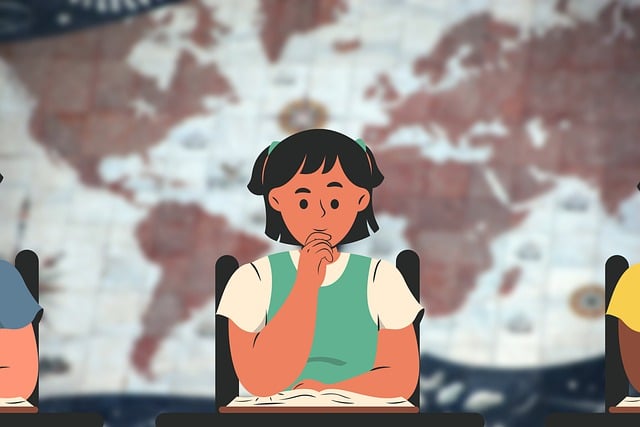Local Tutoring: Personalized Pathway to College Readiness
In today's competitive college admissions process, Local Tutoring and Education Services are cr…….
Local Tutoring and Education Services: A Comprehensive Analysis
Introduction
Education is a cornerstone of societal development, shaping the minds and capabilities of individuals and, by extension, communities and nations. Local Tutoring and Education Services (LTES) play a pivotal role in this realm, offering personalized learning experiences that complement traditional schooling. These services are not merely auxiliary but serve as critical support systems for students across various academic levels. This article delves into the multifaceted world of LTES, exploring its significance, global impact, economic considerations, technological advancements, policy and regulatory frameworks, challenges, case studies, and future prospects. Readers will gain a comprehensive understanding of how these services influence educational outcomes and contribute to individual and societal advancement.
Understanding Local Tutoring and Education Services
Local Tutoring and Education Services encompass a wide array of academic support structures, including tutoring centers, online learning platforms, after-school programs, and home-based instruction. These services are designed to enhance students’ learning experiences by providing additional resources, one-on-one attention, and tailored educational strategies. The core components of LTES include curriculum development, personalized teaching methods, professional educators, and a focus on individual student needs.
Historically, the concept of supplemental education has existed in various forms. However, it was with the advent of modern educational theories and technologies that LTES became more structured and accessible. Today, these services are integral to a holistic educational approach, bridging gaps in knowledge, fostering skill development, and promoting academic success.
Global Impact and Trends
The influence of LTES extends beyond local communities, impacting the global education landscape. International trends indicate a growing reliance on supplemental education services to address diverse educational needs. For instance, regions with underfunded public education systems often rely on private tutoring centers to provide quality education. Conversely, affluent societies utilize LTES to enhance college preparation and standardized test performance.
Global trends also show a shift towards digital learning platforms, making educational resources more accessible and personalized. The COVID-19 pandemic further accelerated this trend, as lockdowns and social distancing measures necessitated the adoption of online tutoring services. This shift has led to a proliferation of e-learning tools and remote tutoring options, democratizing access to quality education on a global scale.
Economic Considerations
LTES contribute significantly to local economies. They create jobs for educators and support staff, stimulate demand for educational materials and technology, and can lead to increased parental employment as they invest time and resources in their children’s education. Market dynamics within the tutoring industry are influenced by factors such as regional demand, competition, and technological innovation.
Investment patterns in LTES reveal a growing interest from venture capitalists and educational institutions. This investment is not only in the form of startup funding but also in research and development to improve teaching methodologies and learning outcomes. LTES thus play a crucial role in economic systems by fostering human capital development, which can lead to increased productivity and economic growth.
Technological Advancements
The integration of technology into LTES has transformed the educational landscape. Innovations such as artificial intelligence (AI), adaptive learning software, and virtual reality (VR) are being employed to create personalized learning experiences that cater to different learning styles and paces. These technologies enable real-time feedback, analytics to track progress, and interactive learning environments that can simulate complex scenarios or provide immediate clarification on difficult concepts.
Future potential for technological advancements in LTES includes the development of AI tutors capable of providing one-on-one instruction, the use of blockchain for secure record keeping, and the integration of augmented reality (AR) to create immersive educational experiences. These advancements promise to make LTES even more effective and accessible.
Policy and Regulation
The governance of LTES is shaped by a complex array of policies, regulations, and legislative frameworks. These include standards for teacher qualifications, curriculum content, data privacy laws, and accreditation processes. In some regions, government subsidies and tax incentives support the expansion of LTES to ensure equitable access. Other areas may have more stringent regulations that dictate the operation of these services, often with the intention of maintaining the integrity of the formal education system.
The balance between regulation and innovation is crucial for the growth and sustainability of LTES. Policymakers must navigate the challenges of ensuring quality and safety while fostering an environment conducive to educational innovation and entrepreneurship.
Challenges and Criticisms
Despite its benefits, LTES faces several challenges and criticisms. Issues such as uneven access due to socioeconomic disparities, concerns over the quality of instruction, and the potential for academic dishonesty are at the forefront. Moreover, there is a need for ongoing professional development for educators within these services to keep pace with pedagogical advancements.
To address these issues, strategies such as implementing accreditation standards, promoting teacher training programs, and creating public-private partnerships can be employed. Additionally, addressing the digital divide by providing access to technology and high-speed internet is essential for equitable educational opportunities.
Case Studies
Several case studies illustrate the successful application of LTES. For instance, in regions like East Asia, supplemental education has been integral to students achieving high standards on international assessments like PISA. In Latin America and parts of Africa, innovative tutoring programs have addressed specific educational challenges by focusing on literacy and numeracy skills. These case studies demonstrate the potential for LTES to significantly impact educational outcomes when implemented effectively.
Conclusion
Local Tutoring and Education Services are a dynamic and evolving part of the global education ecosystem. They offer valuable supplemental educational opportunities that can enhance learning experiences, promote academic success, and contribute to societal advancement. By understanding their components, impacts, and challenges, stakeholders can work towards ensuring that LTES remain accessible, effective, and aligned with the needs of learners around the world. The future of education is increasingly intertwined with these services, making them a critical component in the pursuit of lifelong learning and human capital development.

The COVID-19 pandemic has accelerated a global shift to remote learning, with online education platf…….

Understanding test formats is key for effective preparation, as it allows students to tailor study s…….

High school students struggling in math and science can greatly benefit from Local Tutoring and Educ…….

Local Tutoring and Education Services revolutionize personalized learning by addressing individual s…….

The global pandemic accelerated a shift to remote learning, transforming education by making it more…….

Local tutoring and education services offer a personalized music learning experience, leveraging exp…….

Local tutoring and education services revolutionize education by recognizing diverse learning needs…….

Struggling learners face academic challenges due to foundational skill gaps, social-emotional diffic…….